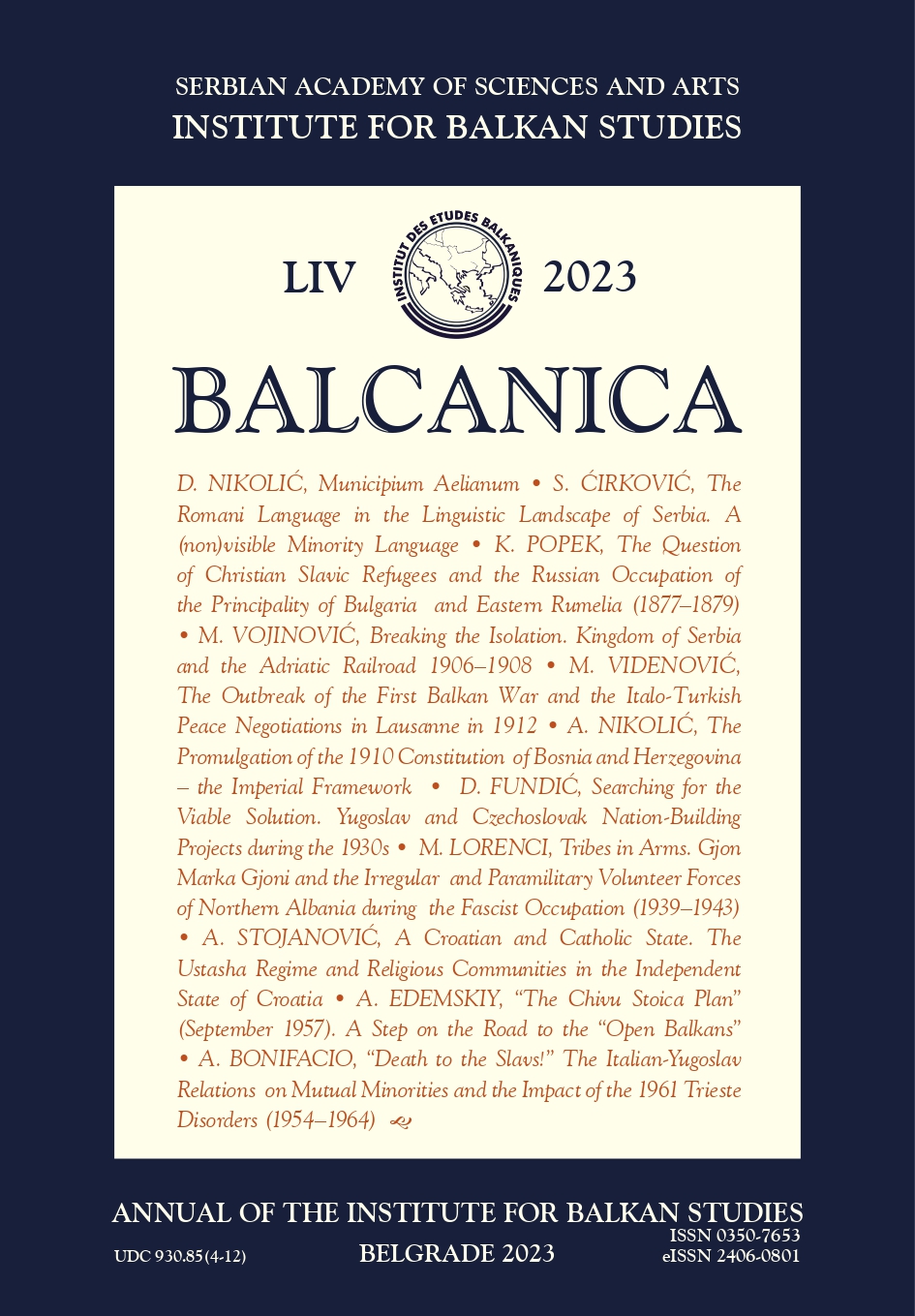“Death to the Slavs!” The Italian-Yugoslav Relations on Mutual Minorities and the Impact of the 1961 Trieste Riots (1954–1964)

Published 30.12.2023
Keywords
- Italian-Yugoslav relations,
- Italian minority in Yugoslavia,
- Slovene minority in Italy,
- 1961 Trieste riots,
- borderland minorities
- diplomatic history ...More
How to Cite
Copyright (c) 2023 Balcanica - Annual of the Institute for Balkan Studies

This work is licensed under a Creative Commons Attribution-NonCommercial-NoDerivatives 4.0 International License.
Abstract
After the 1954 Memorandum of Understanding of London, Italy and Yugoslavia settled their border dispute by partitioning what was formerly the Free Territory of Trieste. Furthermore, they also agreed to extend to each other’s national minorities living in the two zones of the former Free Territory the protection measures established by the Special Statute, an annex to the Memorandum. Neither of the two countries fully complied with the Special Statute but wanted it to be implemented in the Zone administered by the other side. Italy wanted to negotiate all further implementations and new concessions on the basis of reciprocity, the main rationale for the protection measures stipulated in the Special Statute. In contrast, Yugoslavia wanted Italy to agree to the unilateral implementation of the Special Statute in Trieste and to other concessions. This led to a stalemate in the negotiations and consequently to the poor enforcement of the Special Statute, which caused rising tensions on the local level, even though, in the meantime, the overall diplomatic relations between the two countries continued to improve. Yugoslavia’s increasing requests for unilateral implementation of the Special Statute and the Yugoslav-funded Slovene organisations in Italy resulted in a series of major anti-Yugoslav and anti-Slovene demonstrations in Trieste. After these riots and the ensuing debate on the minority issue, the need to rely on reciprocity also became evident to the Yugoslav diplomacy. Yugoslavia, therefore, dropped its old policy and started to improve the treatment of its Italian minority and agreed to negotiate based on the principle of reciprocity. This led to quick benefits for both minorities, and a new path that led Italy and Yugoslavia to sign new agreements on their mutual minorities, going even beyond the Special Statute.

